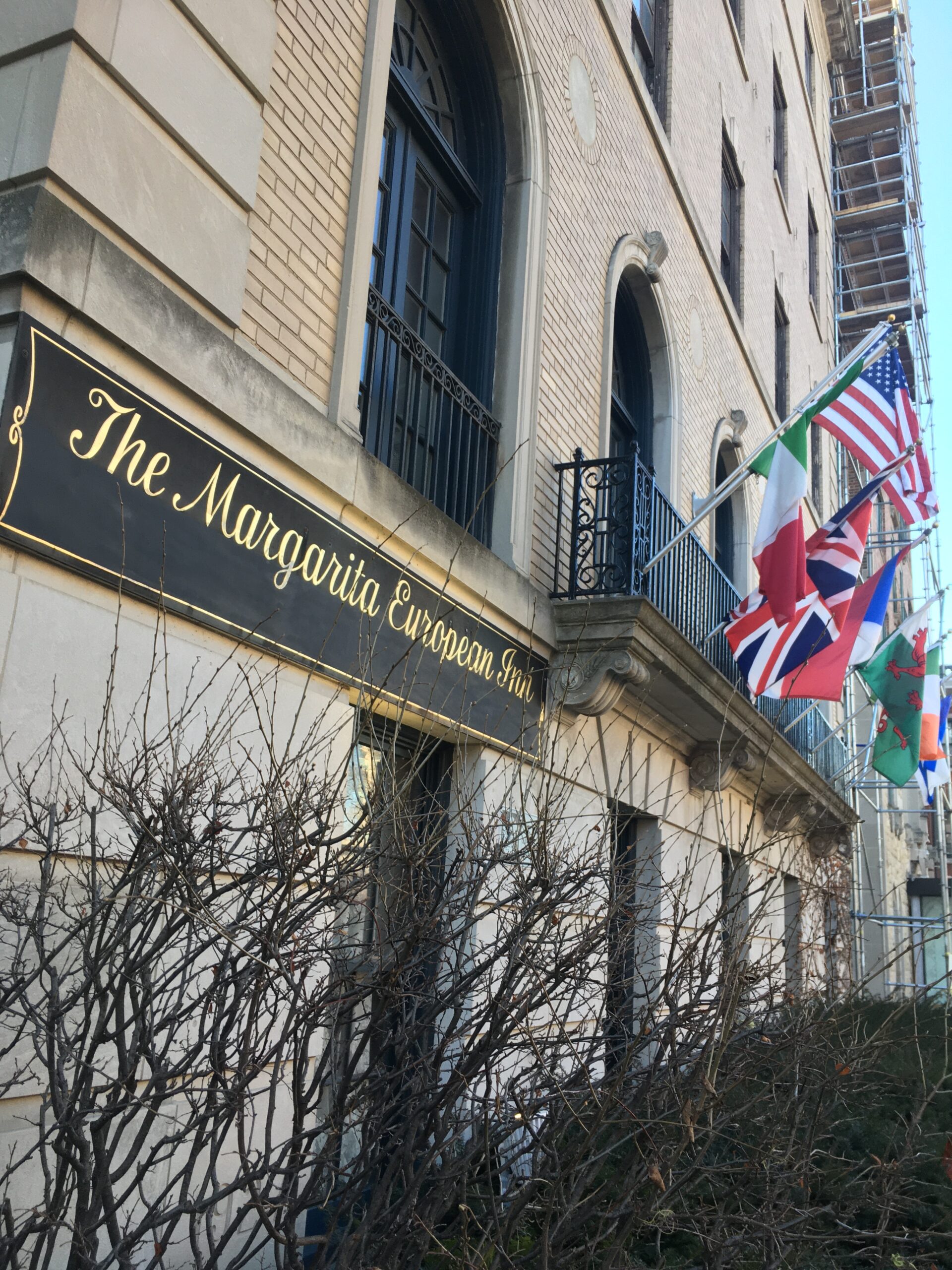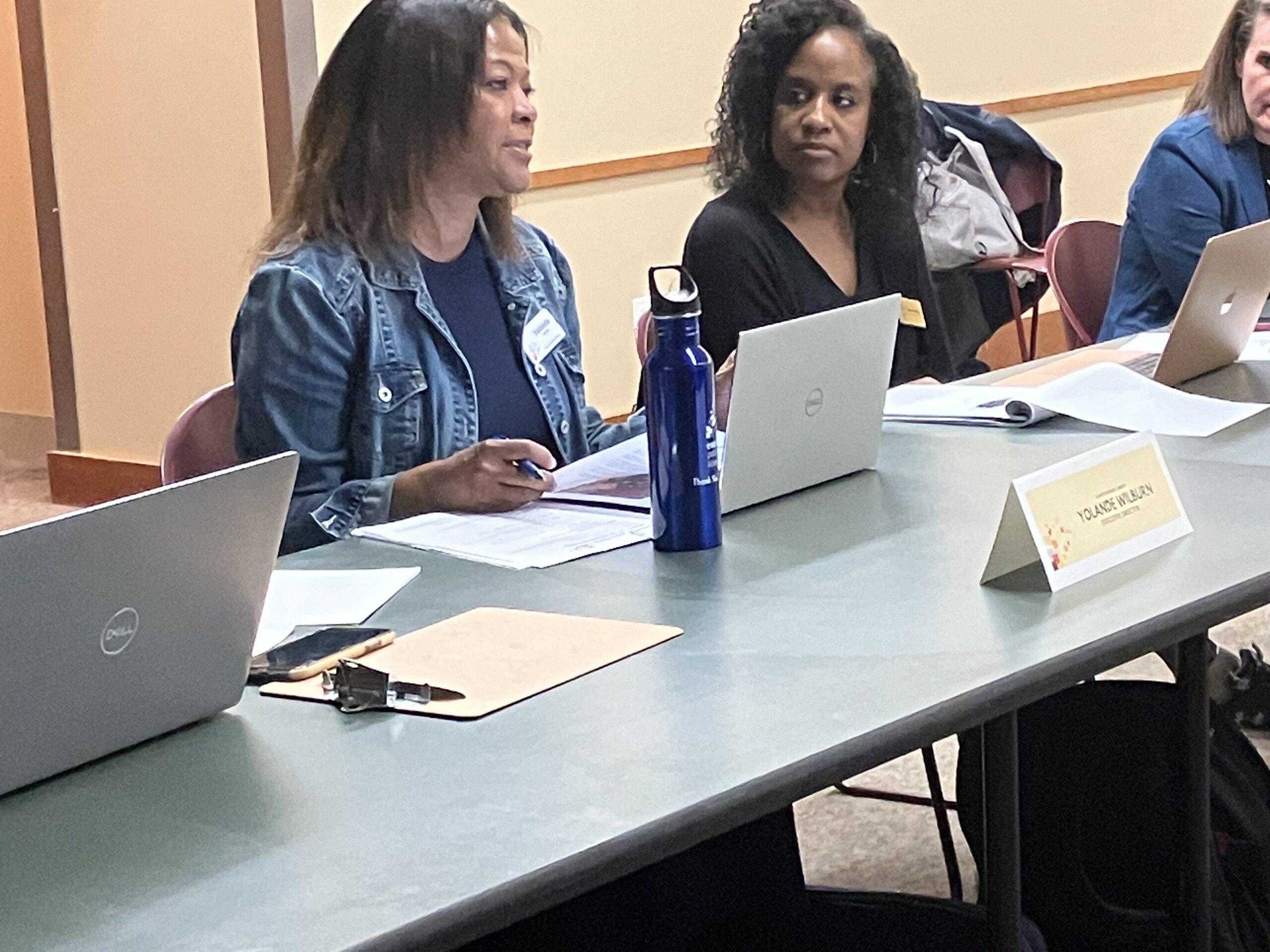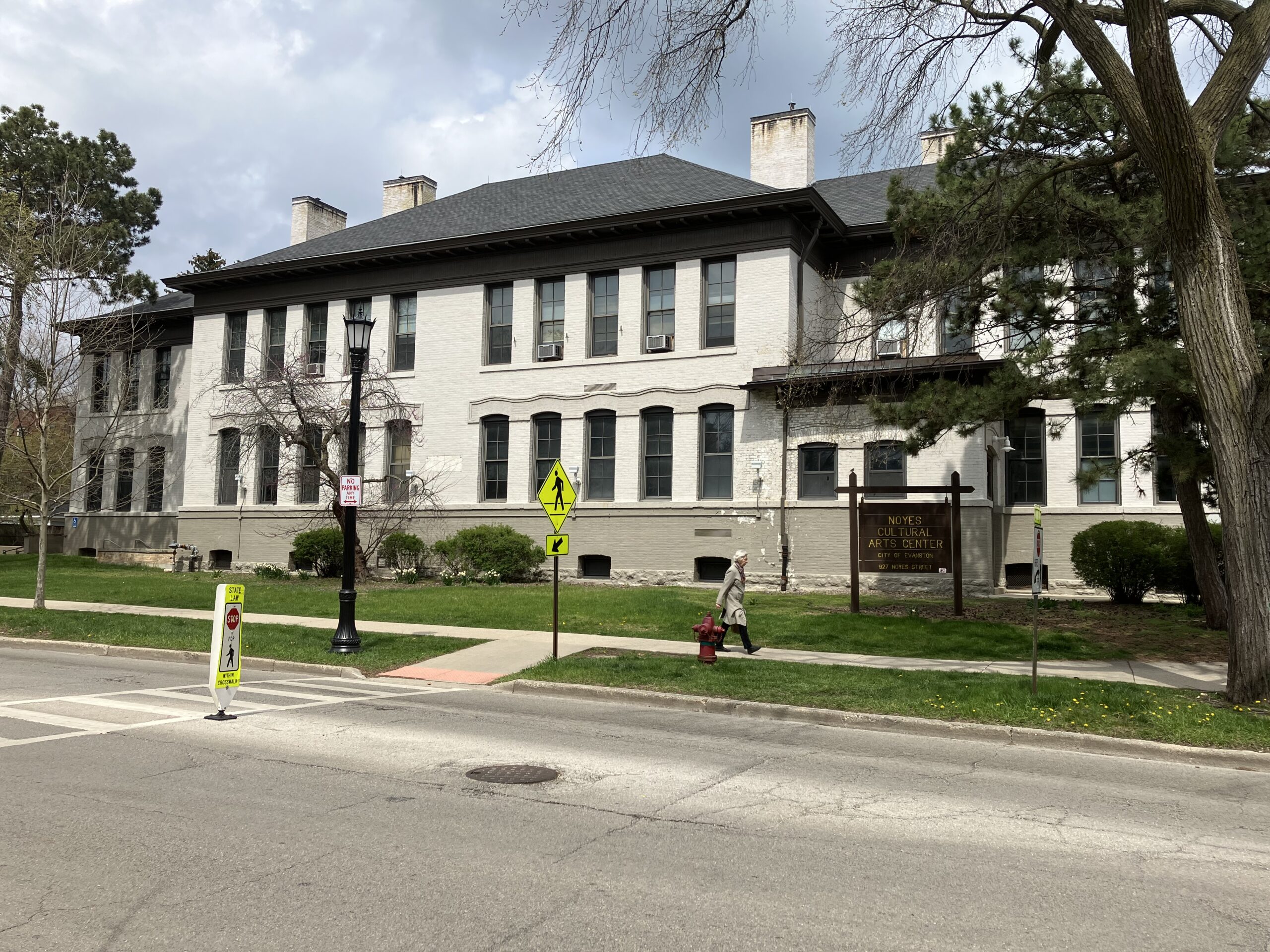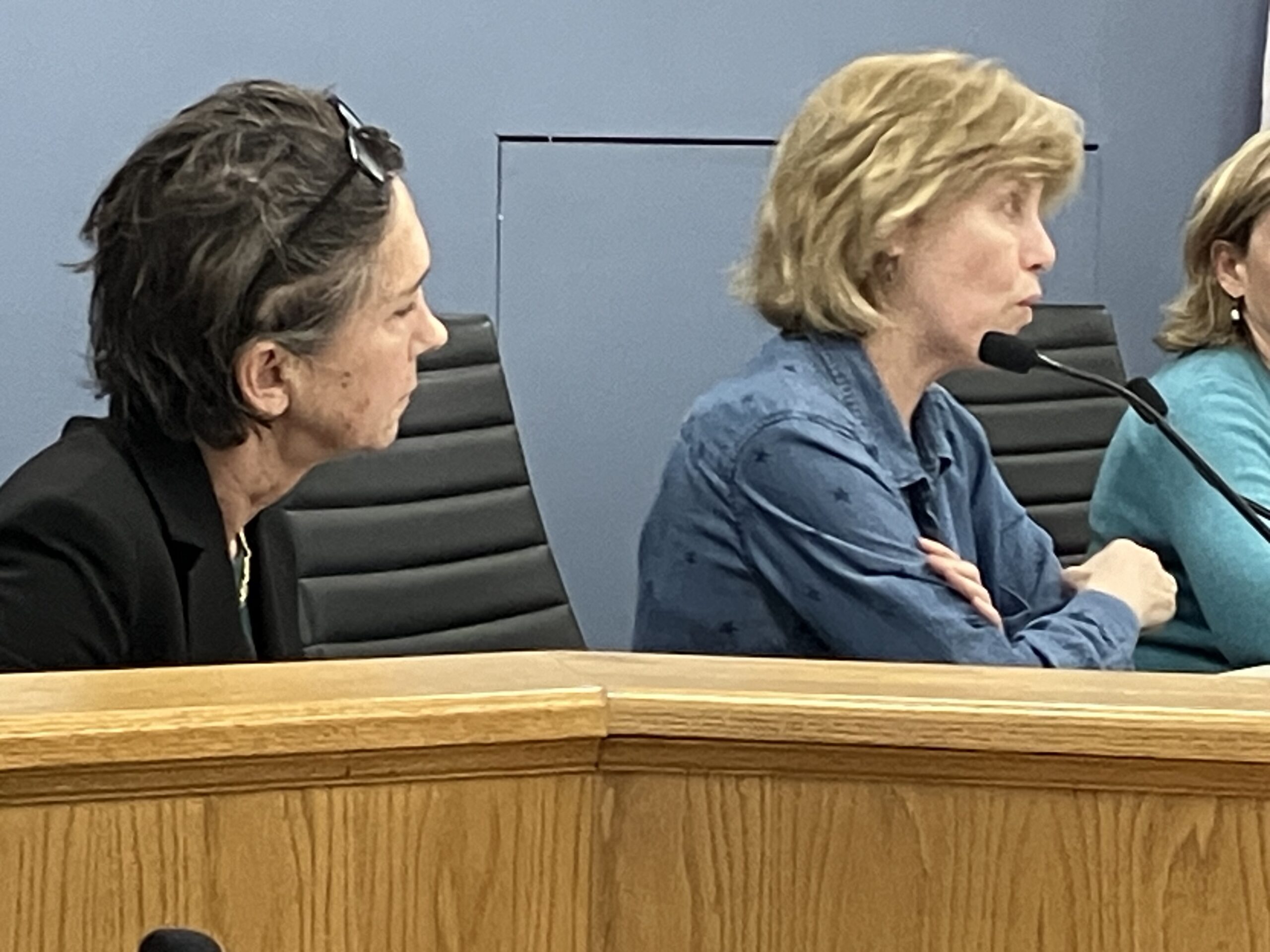By Bob Seidenberg
Neighbors of the Margarita Inn, 1566 Oak Ave., have drawn up an alternative “Good Neighbor” agreement, offering a new set of requirements governing Connections for the Homeless’ plans to operate a homeless shelter at that site.
The neighbors issued a release April 20 outlining their plan, which they called “a template for Evanston’s first homeless shelter.”
The document includes a number of requirements that weren’t included in the Good Neighbor agreement that Mayor Daniel Biss and Connections for the Homeless CEO Betty Bogg signed in a celebratory spirit at LeTour restaurant last February.
Explaining its origins, Greg Morrow, a spokesperson for the group, said one of the positive things resulting from Connections’ use of the Margarita is “we’ve really gotten to know our neighbors, including some Margarita residents.”
“We’ve formed a group dedicated to accomplishing what Connections wants to do, but cannot due to their funding constraints,” he said. “We have done research, talked to experts in mental illness, addiction, other shelter operators, outreach workers, people who have been homeless for dozens of various reasons, case workers, policy makers, police, and have visited other shelters to really get to the bottom of dynamics at play.
“Our Good Neighbor Agreement is exactly what it should be: a document and program crafted by educated parties who care deeply for Evanston as well as the homeless. Our Good Neighbor Agreement ensures that everyone is respected and that everyone can wholeheartedly support Evanston’s shelter with their time, money and enthusiasm.”
Morrow said about a dozen residents were part of the group which helped draw up the proposal, which he said includes a number of points not covered in Connections’ agreement, including:
Limiting the building’s capacity to 30 homeless residents. (Current capacity is 70 people.)
* Requiring that any person accepted for residence at the Margarita Inn have a documented history of having lived in a house, condo or apartment within Evanston for at least a year, and that priority be given to children enrolled in Evanston schools.
* Limiting residents’ stay at the Margarita to no longer than 15 months.
* Separating unaccompanied men from women and children, either by floor or by some other partition.
* Installing cameras on every floor and in common areas.
* Providing an anonymous channel, independent of Connections staff, for residents to report if they are being harassed or otherwise feel endangered.
* Prohibiting possession or use of drugs, alcohol and firearms in or around the Margarita Inn, with immediate eviction for violation and sharing of the information with police.
* Providing full-time certified social worker staffing at a ratio of no less than one worker for every 10 residents.
* Requiring monthly professional counseling for residents with mental health challenges or substance abuse issues.
* Providing job training workshops for residents who are able to work.
Months in the making
Asked about the proposal, Nia Tavoularis, chief of development for Connections, noted the extensive process the parties undertook reaching a Good Neighbor Agreement for the Margarita Inn homeless shelter in February.
“Developing the approved GNA took four months and involved more than 30 neighbors coming together to craft the final document, which was signed by Connections for the Homeless CEO Betty Bogg and Evanston Mayor Daniel Biss on February 8, 2023,” she said in a statement.
‘The smaller 15-person working group consisted of two single-family homeowners, two condo owners, two Margarita Inn residents, one renter, one landlord, two Connections for the Homeless staff members, and three members of the downtown Evanston business community, not all of whom were supporters,” she wrote. “Together, this working group met five times and drafted several versions of the GNA before reaching a final document.”
‘More like a PR stunt’
Fourth Ward City Council Member Jonathan Nieuwsma also actively participated in the process and development of the GNA, she noted.
Connections’ agreement pledged mechanisms for clear communications and strong community relations, including a 24-hour phone number and an email that can be used to contact both the Margarita Inn and a Connections Outreach Team.
The agreement would be managed and monitored by an advisory council to include up to 16 members, including one or two from the city’s Human Services Department.
“This agreement is part of an overall oversight structure which includes the new licensing process and an operating agreement with the City of Evanston that is specific to the Margarita Inn,” said Tavoularis.
“All were welcome to participate in the community drafting of the GNA, but the writers of this alternate version declined to participate. This seems more like a PR stunt than an effort at community engagement,” she wrote.
‘Objective standards’
John Cleave, who lives three doors away from the Margarita Inn, has been involved in discussion of the issue since March 2022.
In an email and follow-up interview, Cleave said he was invited by Nieuwsma, in whose 4th Ward the Margarita is located, to work with Connections on the first draft of their Good Neighbor Agreement, “but after much consideration I turned it down after I concluded it was being done for PR.”
He said the project needs “clear, objective standards around operations to ensure that the problem of homelessness is being addressed in a way that benefits residents, neighbors and the city as a whole, and not just trust Connections to do the right thing. We do this with restaurants, and even hair salons, why not with a high-risk operation such as being proposed on Oak Avenue?
“The initial draft, which Connections wrote, stated clearly that it was not a legally enforceable document, and even the current draft does not spell out any operational requirements other than they listen to neighbors (for example, by establishing a hotline and an advisory committee): there is no stipulation that they act in any way beyond listening,” he maintained.
Cleave, who said he provided some support to the neighbors’ agreement, said in his email response that “I’d like to see the combination of the GNA and the Operating Agreement spell out objective, clearly-defined operational guidelines to be adhered to, such as residence acceptance criteria, the process of onboarding, how much staffing must be provided, ground rules for participation in the program, annual reporting requirements, and so on. If these standards are put in place, then I (and most of my neighbors I imagine) would be fully behind the proposed program.”
The neighbors’ proposal came as city action on the Connections for the Homeless request for special zoning is expected to start up again.
The issue was placed on hold in February after a Cook County judge issued a preliminary injunction on behalf of Cameel Halim, the owner of a property across the street from the Margarita, who maintained he was deprived of his right to testify at a city Land Use Commission hearing about the effect on his property.
The plaintiff’s complaint charged that the “City, the Council, and Mayor Biss intend to continue to flout the plaintiff’s right to due process, and will be proceeding to fast-track Connections’ special use through the Council, without having received evidence from the plaintiff and without having permitted the plaintiff to meaningfully participate in any hearing with respect to the special use.”
The request for a special-use permit to operate a rooming house at 1566 Oak Ave. is now back on the Land Use Commission for April 26, with testimony reopened to hear testimony from the plaintiff as required by the court order.




